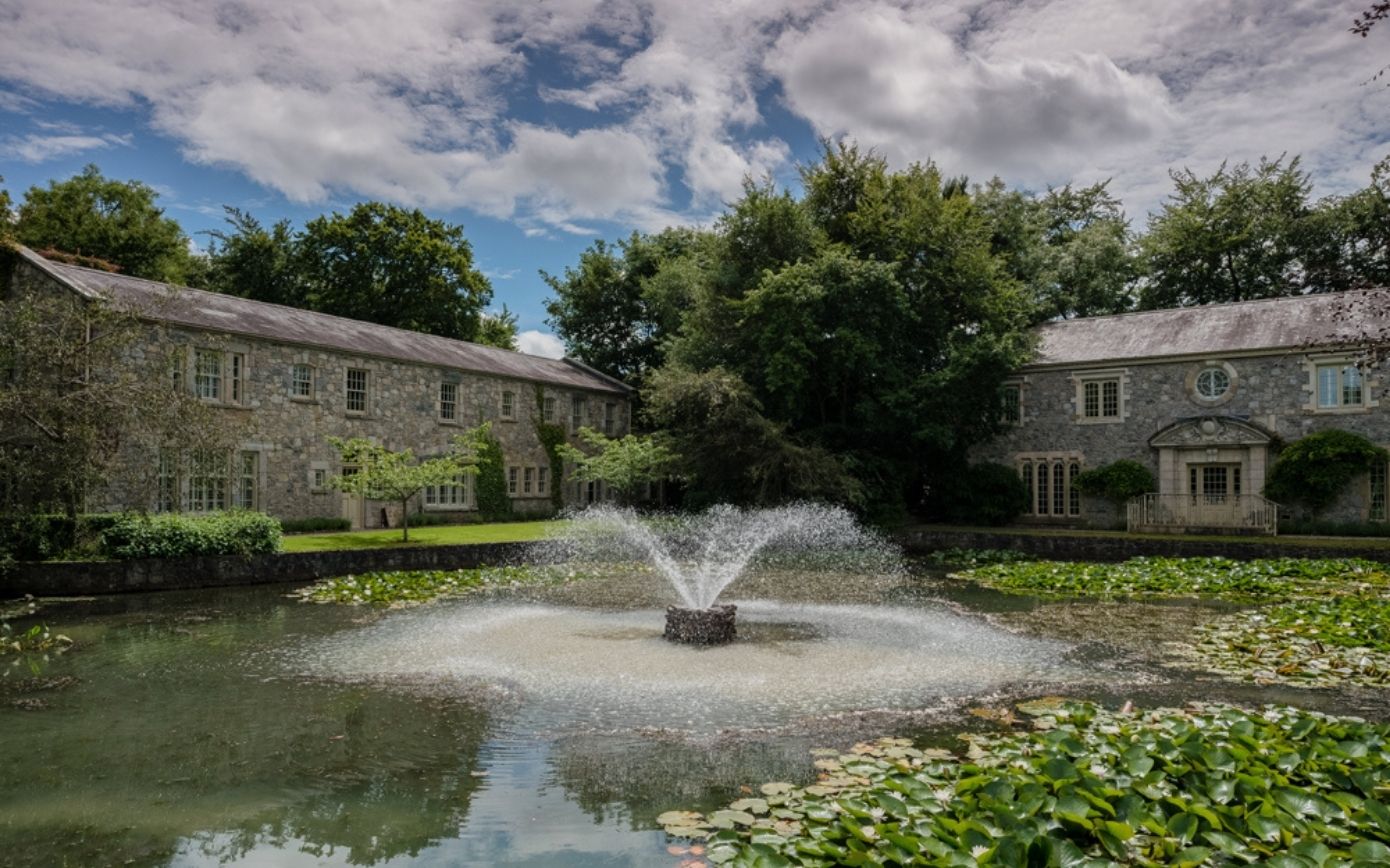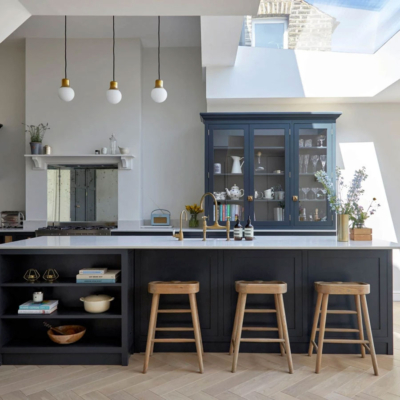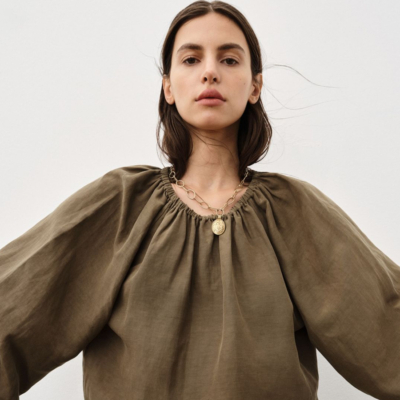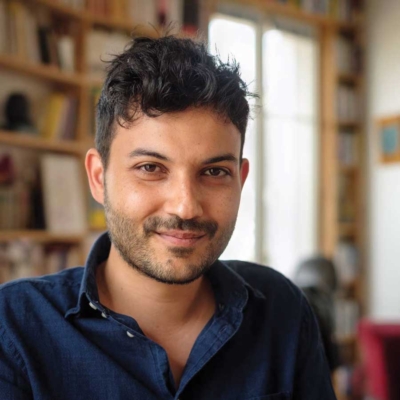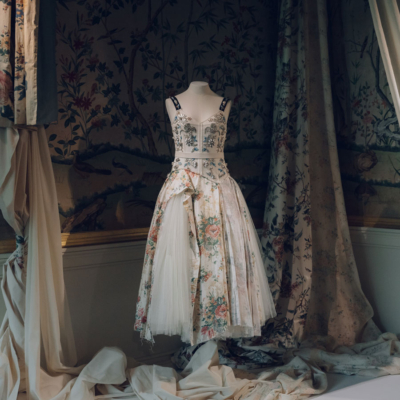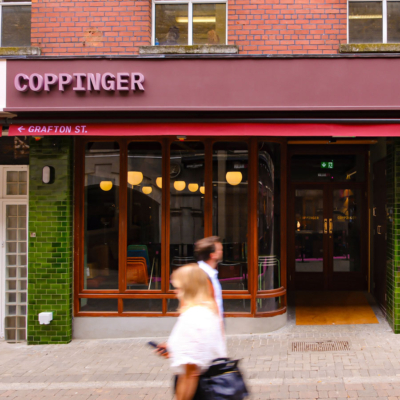It’s an accepted fact the pandemic increased awareness of sustainability among holidaymakers. We asked some Irish hoteliers what they have done to convince guests of their sustainable measures, which reveal how much green tourism has progressed in Ireland

Gregan’s Castle in The Burren, Co Clare
“Caring for the environment and co-existing with nature is at the heart of our philosophy at Gregan’s Castle,” says managing director Simon Haden. “We’re a founding member of The Burren Ecotourism Network, The Burren Food Trail, and a member of The Burrenbeo Trust, and we offer a special ecotourism package to guests. In our restaurant, we mix cutting-edge cuisine with local traditions, following the principles of seasonality and working with local artisan producers. Just how it should be.” The Castle has also been recognised by Lonely Planet for its sustainability efforts and Haden’s long-term plans are to make the hotel carbon neutral certified. A lot has already been achieved. Since last summer the hotel has been growing all its own vegetables. “The Hotel has been run on wind generated electricity for 21 years and more recently it is only using carbon free Biogas. Since last year some bedrooms are heated with heat pumps and this winter a similar system will be installed in staff accommodation. For 2023, Haden is working on installing solar panels on the roof of the 21-bedroom luxury country house where a stay is €250 per room, per night; www.gregans.ie.

Ashford Castle, Co Mayo
As a founding member of Beyond Green, a curated portfolio of the world’s most sustainable hotels (www.staybeyondgreen.com), Ashford Castle has breathed life back into the local village of Cong, home to generations of the castle’s employees. From supporting youth groups to building a community centre to sourcing supplies from local farmers and fishermen, the Castle is strongly committed to good stewardship. The Castle also works (with Winnow) to significantly reduce food waste, using groundbreaking AI technology. Wastewater is treated onsite, and energy, water and waste consumption are monitored and reported monthly by a third-party auditor, Green Hospitality (Ireland). The surrounding forests are carefully monitored, and native species are planted when non-native plants die. There are also efforts to preserve and expand habitats for several endangered species, notably red squirrels, and robins. Why not take in these initiatives during a special history workshop weekend from April 8 – 10 to celebrate the 1922 centenary of Irish Independence. Rates are from €1,775, based on two people sharing; www.ashfordcastle.com.

The River Lee, Co Cork
The River Lee was awarded the Gold Award from Green Tourism – recognition that it has invested time and effort into a truly sustainable operating model that fully commits to a roadmap of change with regards to being climate conscious. Specifically, The River Lee has changed its electricity provider to source electricity from a fully renewable source; Implemented a structured waste management system to reduce the waste produced; Sponsored beehives with as a CSR project using the honey in recipes; Partnered with Tree Aid, to support the planting of trees and sustainable farming in Africa. In addition, the restaurant wine menu only offers fully vegan and organic wines; as for food, the hotel has implemented a green procurement process with suppliers to cut down on waste, air miles and focus on local and seasonal produce for their menus. In the local community The River Lee works with Green Spaces for Health, Cork, to arrange community clean up days, and assists with planting native Irish plants and wildflower to help improve biodiversity air quality. It has also removed single-use plastic water bottles from its property and uses reusable glass bottles across the board. The River Lee currently has a “Great Green Getaway” offer which has sustainability at its heart, from €261 total stay; www.doylecollection.com.

The Old Bank Townhouse, Kinsale, Co Cork
“We are taking a holistic approach to our carbon neutral journey,” says Ciaran Fitzgerald, managing director of The Old Bank Townhouse, part of the Blue Haven Collection. “We engaged environmental experts and visionaries Dr Tara Shine and Madeline Murray of Change by Degrees three years ago to perform an audit of our business with a follow up action plan which we have been working through. Last year, we started our journey with Fifty Shades Greener, a programme that teaches our team all the systems and processes they need to implement to reduce our business carbon footprint. They have implemented things like using ecological paper in bathrooms, using ENVIRO chemical cleaning products and putting a new energy saving and procurement program in place to reduce their carbon footprint.” To experience The Old Bank Townhouse, try its “Culinary Escape” package which includes an overnight stay with breakfast the next morning and an evening meal in Rare 1784, starting from €149 per person sharing;www.bluehavenkinsale.com.

Native, Co Cork
Native is an Irish company set up in 2019 by Didi and Simon Ronan. Didi worked for years in sustainable development and Simon is a landscape architect who has designed luxury resorts around the world including Six Senses in Malta, Raffles in the Maldives, and Park Hyatt in Mallorca. Native Cabins was founded on the back of their combined experiences and on the idea that holidays are an opportunity to enhance and replenish the natural environment, and that bringing people into nature can have a positive impact on both people and planet. Didi and Simon wanted to bring their love of cabin architecture to Ireland and showcase the best of Irish sustainable design. Native Cabins has been shortlisted as finalists in the Design and Crafts Council Business Design Challenge 2021. www.native.ie
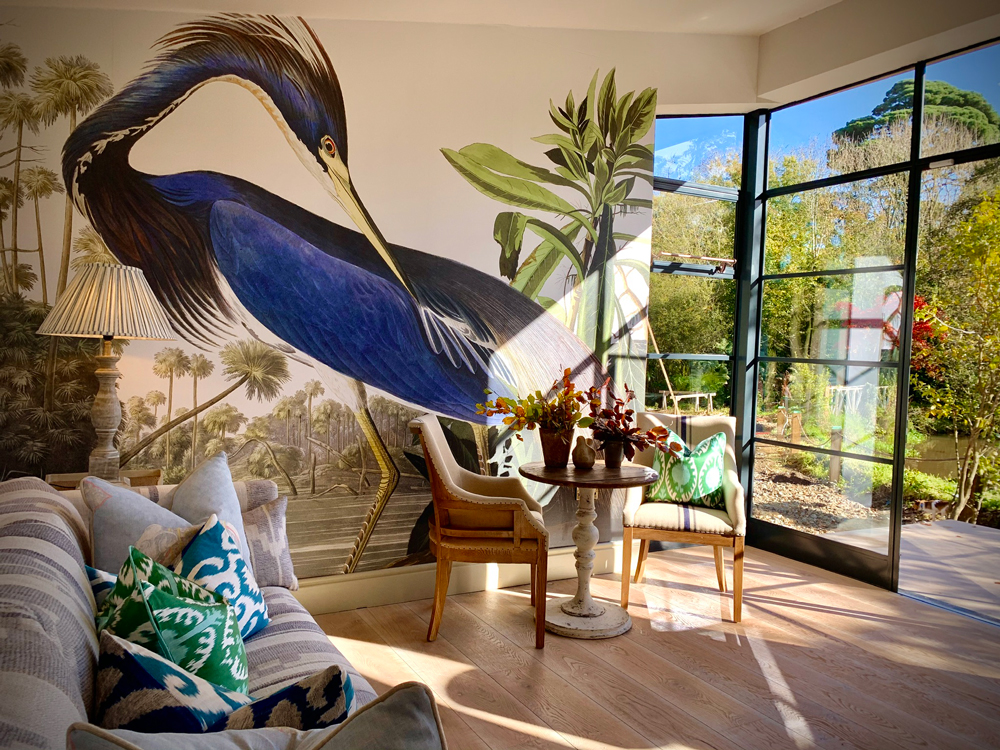
Marlfield House, Co Wexford
“Eco tourism is part of our goal and attraction and country house hotels such as ours by their very nature have a head start in this arena”, explains Laura Bowe, co-owner of Marlfield House. “Surrounded by gardens, woodland, and water, we have created a haven for wildlife and insects. Despite the abundance of lavender borage, herbs, and wildflowers in our gardens, we have noticed a decline in our native bees, bumble bees, butterflies and insects in the past decade. It’s clear now more than ever we must develop and protect our little ecosystem. We plant young native trees annually replacing our very old trees, and can’t wait to see the 10,000 tulips, narcissi and daffodils planted last season flower this spring. Currently 70 per cent of our heating and hot water is generated by heat pumps: we plan to convert the remaining to heat pumps and solar panels this year. Our long-term goal is to keep reducing our emissions and waste and reduce single use plastics to zero by continuously engaging with our suppliers. Our recently built Pond Suites [pictured] are to the highest BER rating and sustainable practices have been implemented throughout. So, Marlfield is a labour of love. We encourage our guests to stay longer (most of our packages are for more than two-night stays) thus encouraging people to travel less and enjoy the environment we have created.” Currently on offer is a two-night gourmet stay with dinner at both restaurants from €166.50 per night; www.marlfieldhouse.com.

Castle Leslie, Co Monaghan
“At Castle Leslie Estate, we’re a working example of sustainable tourism through our measures to protect, restore and give back to our local community,” explains Brian Baldwin, CEO. “We are always seeking environmentally friendly options to help the planet. We have significantly reduced our carbon emissions following a switch to BioLPG, a renewable gas exclusively available from Calor. BioLPG reduces emissions by up to 90 per cent which means a significant reduction in carbon emissions for us making a real difference to the environment. We are delighted to be the first hotel in Ulster to make the move to BioLPG renewable energy and this has enabled us to further commit to our ethos of sustainability.
In addition, we are delighted to have been granted the ECO-Label Certificate as members of Green Hospitality. We have also introduced compostable cups on the estate and in doing so, we are helping our guests to also help the environment. This initiative will cut back on up to 10,000 non-compostable cups each year for us.
Furthermore, we have begun a biodiversity and rewilding project at Castle Leslie Estate. Working in partnership with three other estates, the project aims to become an exemplar of rewilding principles in practice and a pilot rewilding project on over 300 acres that will inspire and inform others. Rewilding will create the conditions for ecosystems evoking those of the ancient Kingdom of Oriel to re-emerge, recover and flourish in a changing environment.” To stay on the Estate, overnight rates are from €175 per night at The Lodge including breakfast and from €300 per night at The Castle; www.castleleslie.com.

Ballymaloe House, Co Cork
“In Ballymaloe House, we are very lucky to have always had sustainability in our ethos, thanks to Ivan and Myrtle Allen’s great influence”, acknowledges Fern Allen, Ballymaloe House manager. “But it is now more important than ever to be more sustainable in our business and private lives. Last summer we installed photo voltaic panels on the shed roofs in the farm. This along with a biomass boiler helps to ensure that we are moving towards being carbon neutral in the house.
We are in the lucky position to have a walled garden where many of our vegetables, herbs and flowers for the house are grown. Myrtle’s philosophy of not over filling plates for our diners (but always offering more) cuts down on waste too. The unavoidable non-meat waste goes to our lucky hens and pigs which reward us with delicious eggs and pork.
We plant hundreds of trees annually which are enjoyed by wildlife and guests. We support Bird Watch Ireland and are sponsoring the garden bird survey this year. We are always looking at ways in which we can be more sustainable.” This month, Ballymaloe House is offering “Biodiversity Walks and Talks” with their knowledgeable groundsman, Tobias on Wednesday and Friday mornings at 11am. Tours are complimentary to residents and take approximately one hour; www.ballymaloe.ie.

The Wilder Townhouse, Dublin
The Wilder Townhouse has introduced its very own Wilder Beehives and The Wilder bees annually produce 50 pounds of honey which is served to guests, part of this stylish hotel’s commitment to offering local, organic and sustainable cuisine. The sustainability ethos is being led by General Manager, Barry Francis, who says, “We have learned so much from our partners Dublin Honey Project and from Kieran Hartnett its founder, about how important bees are to the environment, and we wanted to play our part. With bee colonies dwindling, it’s important to support the growing movement of bee producers. We also learned that urban honey is highly prized for its flavour as its nectar is sourced from a much broader range of plants than its rural equivalent, so we have the added benefit of offering our guests a very exclusive, locally produced product as part of their Wilder experience.” www.thewilder.ie

The Press Up Group
All hotels within the Press Up Group – including The Devlin, The Mayson, The Clarence, The Dean and Glasson Lakehouse – take their commitment to the planet seriously and are working on several initiatives to reduce their carbon footprint. “Across the hotels we have pared back any single use plastic in our rooms, instead we provide built in containers of luxury toiletries (so no need to bring all the mini bottles!),” says Laura Arnold, head of marketing and PR. “All hotels are powered by renewable energy, and all waste is processed and does not go to landfill. In The Dean Dublin, rainwater is harvested to use across the hotel, and in The Mayson, we have a vertical green wall, a stunning focal point in the outdoor terrace.” To stay in The Clarence, pictured, which has been newly redesigned, bed and breakfast rates are from €179; www.theclarence.ie.

The Cliff Group
The CLIFF group are strong advocates of sustainability – their restaurants all focus on sustainable, local ingredients, and Cliff at Lyons, Co Kildare have even added a farm this year which supplies their restaurants, and any food leftovers goes back into the farm.
The hotels have added sustainable amenities to guestrooms to reduce plastics – gorgeous soap and shampoo bars from Irish company Airmid in Clare, and they also have reusable shampoo and shower gel bottles in the shower which will be in all bedrooms in the coming weeks. The group also produces its own spa products, The Well at Cliff, using Irish, natural and sustainable ingredients in recyclable packaging. The “Get back to nature with Aimsir Farm Experience” at Cliff at Lyons includes a lovely tour of its farm and gardens, during which guests can pick up tips and tricks on sustainable gardening. This is followed by a garden to plate experience in the two Michelin-starred Aimsir plus dinner in The Mill Restaurant with an overnight stay, €561 for two people; www.cliffatlyons.ie.

The Station House Hotel, Co. Meath
The family-run Station House Hotel sits on twelve acres of lush manicured gardens and woodlands, listed on the Boyne Valley Garden Trail. Here, guests can completely switch off and enjoy the peaceful, tranquil surroundings. For those who’d like to explore the natural world even more deeply, one of The Station House’s neighbours is naturalist and film-maker Randal Plunkett, 21st Baron of Dunsany, who took the unorthodox gamble of deciding in 2014 to rewild his family’s demesne, building a thriving 750-acre nature reserve. This project at Dunsany is the first Irish project to be recognised by the European Rewilding Network and has led to increased biodiversity, including sightings of rare local bird species not recorded in the area for a long time such as red kites, woodpeckers, barn owls, long-eared owls, herons and sparrow hawks, along with red deer, foxes, otters, badgers, pine martens, hares and stoats. Guests can visit the Dunsany Nature Reserve as part of a two-night stay which includes dinner on one evening (from €450 per double room). As part of this collaboration, and to tie in with the sustainability mission of The Station House, the hotel will be donating funds to the Dunsany Nature Reserve for each outing, with funds to plant a minimum of seven trees per outing; www.stationhousehotel.ie.

Wren Urban Nest, Dublin
Snug, stylish, and sustainable – this hotel from Moran Hospitality is faultless. Designed by BDP architects, the hotel believes in taking “little steps” towards a better planet – by not burning any fossil fuels and installing a heating system using sustainable technology. It’s the first hotel in Ireland to comply with the World Green Building Council’s definition of “Net Zero Carbon” without having to purchase carbon offsets. That all means that guests can enjoy luxury without feeling guilty. “We believe big hotel rooms are overrated,” declares the hotel website and there are 137 rooms spread across nine floors divided into three categories: snug nest (10 sqm), cosy (12 sqm) and roomy nests (18 sqm). I have stayed several times in a cosy nest on the seventh floor and loved the compact, design led Scandi vibe of the rooms (and The Handmade Soap Co toiletries) and the subtle sustainable tips and atmosphere. It’s more like an intimate and exclusive as a private club (without the leather armchairs and cigars) than a holier-than-thou homage to sustainable chic. My style takeaways: the use of natural materials, softened by pampas and pot plants, bathes the interiors in a golden hue, and makes it feel warm and inviting; www.wrenhotel.ie.

Killarney Park, Co Kerry
Ciara and Marcus Treacy are third generation hoteliers; Ciara manages The Ross, while Marcus runs Killarney Park in one of the most scenic areas of the world – the hotels sit on the edge of Killarney National Park on the Ring of Kerry. As some of the first hotels to ban single use plastic, including water bottles, instead, they offer sustainable re-usable water bottles and have refill stations with pure local water. Filtered water is offered to all guests dining in the hotel restaurants, a nominal charge is allocated and proceeds from these water sales are donated annually to a local sustainable project. In 2021 the hotels donated €4,000 to a local charity, Killarney National Park Mountain Meitheal Voluntary Group. They have a sustainability manager on staff to help develop and oversee the hotels sustainability strategies and practices. The Killarney Park and The Ross have also worked to find suppliers that are committed to reducing plastic packaging and who are delicate to the environment. Every supplier analyses their footprint on the local area. For example, the sourdough bread in the hotels is baked by Cormac, the owner of Real Bread Killarney. They also purchase their ice cream from John of Muckross Ice Cream (when they don’t make it themselves!). They have pioneered a group of like-minded hotels under an umbrella called Killarney Hotels Sustainability Group to share ideas on how to have less impact on the local landscape. As for guests, they can join the effort by spending more time in Kerry exploring the 26,000 acres of National Parkland! The hotel offers complimentary bicycles and visitor can also pledge trees to offset carbon via HomeTree Ireland. Bed and breakfast is from €275.00 per room per night and there is currently a March midweek offer, stay three or more nights and get one night free. Available on certain dates and bookable online; www.killarneyparkhotel.ie.

The Limerick Strand Hotel
The hotel recognises that it has an important role to play in protecting and enhancing the environment for future generations as well as to help secure the long-term sustainability of the tourism industry. Stephen O’Connor, general manager, explains, “Our aim is to continue to make gradual changes over time in all aspects of the business from our annual targets to reduce our water consumption, energy consumption and food waste to procuring and implementing sustainable products and practices throughout the Hotel.
We operate a Combined Heat & Power (CHP) Unit that works in tandem with our cutting-edge Building Management System (BMS) to closely monitor and manage our power consumption throughout the hotel each day. We source local produce wherever possible for our menus, not only to support our local community but to help reduce carbon emissions incurred by delivery.
We have recently changed our guest amenities to Rituals Cosmetics in our guest rooms and public areas. Rituals share our commitment in working towards a sustainable future and we have changed to refillable dispensers as opposed to single use plastic. The Team here at the Limerick Strand Hotel understand the importance of putting in the time and the effort to ensure a sustainable future for everyone!”. Rates at Limerick Strand are from €155 for bed and breakfast; www.limerickstrand.ie.
LOVETHEGLOSS.IE?
Sign up to our MAILING LIST now for a roundup of the latest fashion, beauty, interiors and entertaining news from THE GLOSS MAGAZINE’s daily dispatches.




